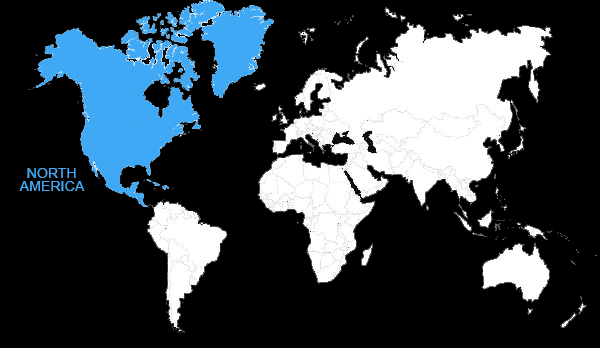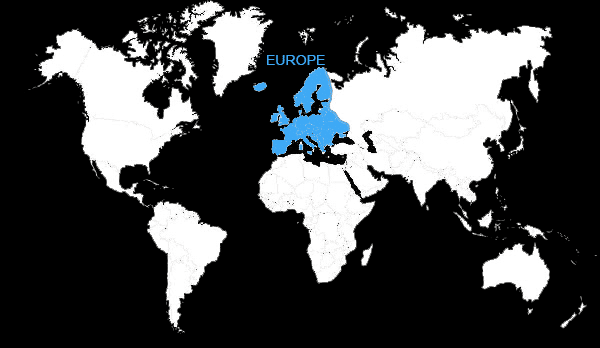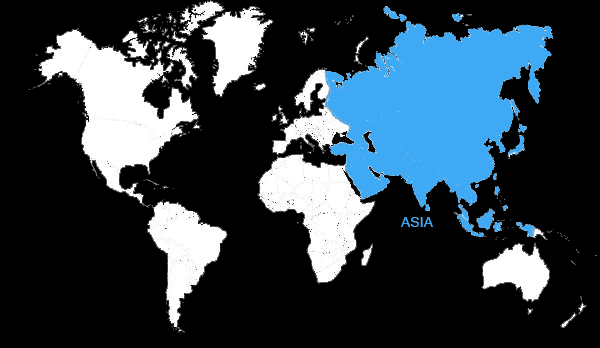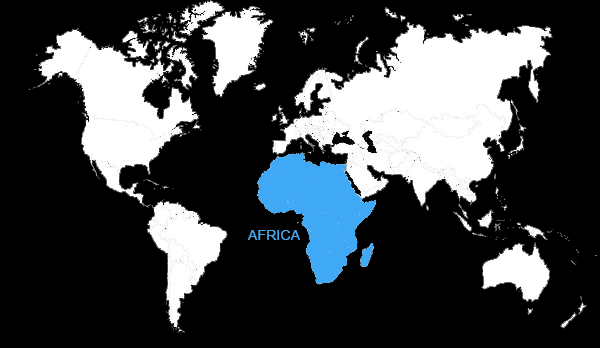Becomong a professional soccer player is something many players dream of becoming from a young age. The road to becoming a professional soccer player will vary depending on the country and clubs near you. Generally, to become a professional soccer player, you will need to be playing soccer competitively from a young age.
By playing competitively, you will be able to move around clubs that are more competitive and make your way to the top. If you are located in an area that has a professional club, try and reach out to the club to join their youth academy. Joining a professional soccer teams youth academy is one of the most popular ways to make your way to the first division team.
Here at fcscout.com we provide up-to-date tryout information from all across the globe in Europe, Australia, Asia, North America, South America, and Africa. Below is a series of frequently asked questions from many of our visitors from all across the globe.
EXPLORE MORE CLUBS!
Explore more professional clubs by continent.
Frequently Asked Questions
How do you get noticed in soccer tryouts?
1. Arrive early to the tryouts
Nothing will stand out more than arriving late to the tryouts. If you arrive late, you will immediately have a bad first impression with the coaching staff. They are searching for players who not only have skills but also players who will follow the rules.
2. Focus on your strengths
Don’t go to the soccer tryouts trying to do more than you are capable. If you know you don’t have very good skills to take a defender 1v1, don’t think you have to do everything on the field. If your strength is playing defensive midfield, play that position how you always play it. Doing too much might leave the coaching staff confused on where you play. If you focus on your main strengths, it will immediately show the coaching staff where you belong on the field.
3. Interact with other players
Soccer skills and technique are very important but so is the personality of players. Many coaches want players who not only can play but who can get along with the rest of the team and build chemistry.
4. Don’t be afraid to speak your mind
There is always a time and place for giving feedback but sometimes a player has to step up and let the coaches know how he/she feels. During a tryout, there could be many players who attended the event. You might be placed in a position that you rarely play. The coaching staff has many people to observe and take notes on so they might forget you are playing in the wrong position. During a break, bring the concern to the coaches attention and politely request if you can alternate positions to play your natural position.
5. Show leadership skills
Leadership skills is something that you will continue to learn throughout your career and life. Make it a habit to consistently improve upon being a leader. There are many natural leaders who naturally enjoy being the leader and are very good at it. If you are in a position where you naturally don’t have those skills, don’t worry, this is a skill you can learn. Focus on observing people who naturally take charge and take note of their actions and the type of words they use. Also focus on reading specific books on leadership.
Is it hard to go Pro in soccer?
Becoming a professional soccer player is a journey that requires a lot of commitment and dedication. Many people dream about becoming a professional soccer player but live short of this expectation. One of the biggest reasons they fall short on this goal is because they might have gave up too soon. Yes, going professional in soccer is extremely difficult but so is going to the moon. What do both of these have in common? The dedication and commitment people have to make that objective happen! Going to the moon required engineers and scientist to have failure after failure until it finally happened. The same thing can go for your dream of becoming a professional soccer player. Just because you failed, doesn’t mean you give up. If this is something you REALLY want, you will find a way to continue the dream and make it. There are so many clubs in this world that consistently have tryouts, so this might even require you traveling to other locations. Take a look around our website here at FCscout.com and stay up-to-date on the latest tryout information from clubs all over the world.
How do I go pro in soccer without college?
To become a professional soccer player without college, you have to get involved with various clubs. This can mean that you join the academy of a professional soccer team and work your way up within their different age groups. Another way is that you can join affiliate clubs from those professional soccer teams. Many clubs around the world have affiliate teams that they send scouts out to observe any players that stand out. The scouts will then bring these players to join the professional soccer teams youth academy. Finally, clubs all around the world offer tryouts/trials throughout the year and offer players the chance to prove that they belong to that club. This is why it is very important to stay in shape all throughout the year so you are always ready. To find affiliate clubs of professional soccer teams or tryout/trial information, browse around our website here at FCscout.com.
What age do soccer players go pro?
The vast majority of players who excel at soccer from an early age go professional at the age of 16. This is typically players who have been playing at the clubs academy team from a young age and will sign their professional contract with the first team at 16 for a change to play with the first team. The age of 16 is usually for players who show they are ready from a young age to play with the first team and have been promoted through the ranks of that academy. For players who did not have a chance to join an academy as a child, they usually go pro around 18-23. Going professional at an older age involves them searching for clubs to tryout for or in some cases, college can lead to entering a draft such as the MLS super draft.
How do you get scouted in soccer?
Many clubs around the world have dedicated staff members who solely focus on scouting and recruitment. Scouts attend many games throughout their communities, which is why it is important to join clubs and consistently stay active and playing throughout the year. Also, many soccer clubs will tell you which local clubs scouts go watch and you can find these details from clubs on our website fcscout.com. If you live in an area that has a professional soccer team, make sure you join local clubs that are affiliated with that professional soccer team to increase your chances of being scouted. Some professional soccer clubs will also allow players to submit applications for their scouts to review your video reels. For more information on specific scouting for each club, browse around our website.
What age is too late for pro soccer?
Generally, a soccer player will find it very difficult to become a professional soccer player past the age of 24 years old. Although not impossible, many clubs are looking for players at this age group to have a decent amount of experience in their resume. The chances of going professional past the age of 24 in a first division team are very unlikely but the chances for joining lower division teams is still fairly high if you possess the required skills. A prime example of a professional soccer player who continued to pursue his dream is Jamie Vardy. He was playing in lower division teams until he got his break at the age of 26 and signed for Leicester City, which he helped promote to the Premier League in 2014 at the age of 28. Later in 2016, he managed to score 24 league goals and clench the Premier League title with Leicester City at the age of 30.
Do professional soccer teams have open tryouts?
Many professional clubs all around the world have dedicated open tryouts at specific times throughout the year. They allow players to showcase their talent in an open tryout format, which could either be a full field 11v11 game or drill based. These open tryouts are usually announced with very little notice so it is important to always stay in shape. Announcement for these open tryouts can be found for specific clubs on our website fcscout.com.
How do you join a professional soccer team?
Joining a professional soccer team will vary depending on your age. The younger players typically around the age of 5-14, join professional soccer teams by first joining their academy teams and working their way up the age group ranks. For players around the age of 15-18, the options can either be playing for affiliated clubs from the professional soccer team and having a scout notice you or attending one of their open tryouts. For players older than 18, the highest chances are searching for tryouts at professional soccer teams. Academy and tryout information for over 300+ clubs can be found on our website fcscout.com.
Is 17 too late to become a professional soccer player?
At 17 years old, you still have fairly good chances of becoming a professional soccer player if you stay determined. At this point, if you are not playing with a professional soccer teams academy, you should be actively involved in the highest level of competition you can compete in depending on your area. You can search for open tryout information from clubs all around the world who are looking for players by visiting our website fcscout.com. It is important that you maintain your cardiovascular condition at the highest peak throughout the whole year because professional clubs tend to notify about open tryouts with very short notice. Stay up-to-date with our website.
Soccer tryouts 2022 near me?
Professional soccer clubs will announce soccer tryouts throughout the year usually within short notice. For a complete list of up-to-date soccer tryout information, browse our website fcscout.com. We strive to continually provide the most accurate up-to-date information to all our visitors.
What is the difference between a soccer club and a soccer academy?
Many time the two are used interchangeably and can have the same or different meaning depending on who you ask. Generally, the most common difference between the two is that a soccer academy will have teams with specific age groups such as a U17, U15, U14, and so on, that competes with other teams. On the other hand, a soccer club can also have specific age groups for teams but they might also have teams that compete against one another or compete with other club teams. A soccer club can also have different leagues within the organization and have players sign up to play in that league. A soccer academy might not just let anyone signup, the players might have to be scouted and invited to join the academy. Either way, many people all over the world have different interpretations as there is no specific definition since everyone uses them in different ways.
Is club soccer worth the money?
Club soccer is generally one of the most competitive leagues a youth player can join since it allows the player to play against other clubs who are within the same skill level. It is worth the money if the player is serious about pursuing soccer as a career or for academic scholarship purposes.
What is club soccer?
Club soccer allows players to join a locally organized teams that allows for organized soccer to take place such as by competing in weekend tournaments and practicing during the week with the same team. Club soccer is one of the stepping stones players take to join a professional soccer teams academy because scouts from pro teams typically go watch local competitive youth games to try and find talent.
What is travel soccer clubs?
Travel soccer is organized teams who not only compete locally but also travel regionally to other tournaments. Travel soccer is generally regarded as high competition soccer and requires a lot of commitment from both the player and parent. If you live in an area where a professional soccer team is not local, you should consider travel soccer clubs as this will allow the player to travel to locations where other scouts might be.
What is the difference between travel soccer and club soccer?
Travel soccer involves the player to travel with a team outside their local area and club soccer generally plays locally against local teams. Travel soccer is generally more expensive as it requires travel, food, and lodging fees. Travel soccer can also allow players to travel internationally to tournaments where they can gain valuable playing experience.
What is a full back in soccer?
A full back in soccer has many characteristics that consist of: (1) Lining up on either side of the defense (2) Marking opposition wingers, (3) Providing support for the wide midfielder ahead of them, (4) May overlap and send crosses into the opposition box, and (5) Often takes throw-ins.
What is a wing back in soccer?
A wing back in soccer has many characteristics such as a full back, which consist of: (1) Overlapping and sending crosses into the opposition box, (2) marking opposition wingers when needed, (3) Expected to stay on their touchline, and (4) One of the most physically demanding positions.
What is a center back in soccer?
A center back in soccer has many characteristics such as: (1) Shutting down opposition attackers, (2) May employ zonal or man-marking strategies, (3) Brings the ball out from the back, (4) Often tall and physically strong, (5) Brave and heading ability desirable, for use in either box.
What is a sweeper in soccer?
A sweeper in soccer has many characteristics such as: (1) Is a safety net for the center backs, (2) plays alongside center backs or just behind them, (3) races to cover gaps when defense is breached, (4) less concerned with man-marking, (5) reads the game from deep, (6) joins midfield build-up when in possession.
What is a defensive midfield in soccer?
A defensive midfield in soccer has many characteristics such as: (1) Playing in front of the defense, (2) Wining the ball back with tackles and interceptions, (3) Covering teammates when they go forward, (4) Presses opposition attackers, (5) Physically fit and tenacious.
What is a box-to-box midfielder in soccer?
A box-to-box midfielder in soccer has many characteristics such as: (1) Lining up in the middle of the field, (2) Equally adept at attacking and defending, (3) Maintains possession, (4) Tracks back to tackle and block shots, (5) Breaks into the opponent’s box and tries to score
What is a attacking midfielder in soccer?
A attacking midfielder in soccer has many characteristic such as: (1) Dictating play from behind the strikers, (2) Creating goal scoring chances for the attackers, (3) Technique and creativity are crucial, (4) Ability to shoot from outside the box, (5) Historically associated with the No.10 jersey.
What is a winger in soccer?
A winger in soccer has many characteristics such as: (1) Being the widest attacking player, (2) Takes on opposition defenders, (3) Provides crosses into the box, (4) Meets crosses from the opposite wing, (5) Often the fastest player on the field.
What is a false 9 in soccer?
A false 9 in soccer is an attacking position that has many characteristics such as: (1) Starting up front near the opposition goal, (2) Replaces the traditional striker in most formations, (3) Drops deep to pull opposition defenders out of position, (4) Often a converted attacking midfielder, (5) Dribbles and creates chances.
What is a striker in soccer?
A striker in soccer is an attacking position that has many characteristics such as: (1) Closest player to the opponent’s goal, (2) Responsible for scoring goals, (3) Holds the ball up until teammates can join the attack, (4) Presses opposition defenders when team loses the ball, (5) Physically strong and tall or small and agile, depending on coaching staff preference.
We encourage you to explore and look around to see if you can discover your next challenge. Becoming a professional soccer/futbol/football player takes a lot of commitment and sacrifices. The following step is to take a leap of faith and explore possible opportunities you may be willing to take on.
It only takes one successful tryout for you to make it to the pro leagues. Don’t wait for opportunities to come to you. You go after those opportunities.
Don’t let time pass and think back asking yourself “what if”. “What if I would of tried out”, “what if I would of took the leap of faith and pursued my dream”. Don’t let this happen to you. Take action now. You never know where you will end up if you actually try.
This website took (and still is) a lot of hard work to setup and provide this much information. I ask for any of you who happen to land on this page to just please follow your dreams. You are on this page for a reason. What ever that reason is that brought you here, go in the direction of your dreams and never look back.
I hope to see many of you in the top leagues.
Take care.
-FCscout.com, Founder
“DISCOVER YOUR NEXT CHALLENGE.”






